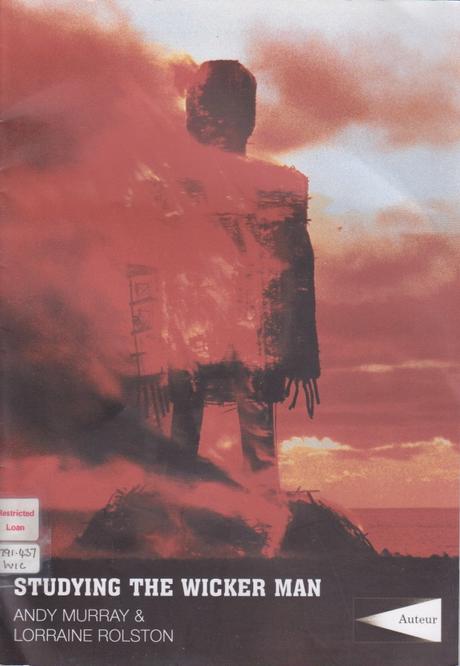
The funny thing about people, or at least one of the funny things, is that when individuals get together we notice different things. It can happen at in-person meetings or “virtually” through books. I’m working on a book on The Wicker Man, as I recently noted. Others have written on the movie, of course, and I’ve read some of their analyses already, but I’m continuing to read more. Recently I finished Studying The Wicker Man by Andy Murray and Lorraine Rolston. This particular book—more along the lines of a booklet, actually—has quite a few observations about the movie that I had missed. Connections, or interpretations, that I’d failed to make despite having watched the movie many times. It takes the meeting of the minds to bring many things to light.
One of the questions they raised (and there will be spoilers here) is why the movie bears the title it does. Obviously the climatic moment of the film features a wicker man. Murray and Rolston noted, however, that more could be going on in this title than is obvious. Sgt. Neil Howie, the protagonist, is a lot like a wicker man himself. I won’t repeat their wonderful work here but I will say it’s convincing. The literary trope of “the hollow man” (it could be woman, or hollow person, but I’m writing from personal experience) can be a poignant one. We know that life may carry on biologically, but what makes us who we are is what goes on inside. The hollowness may be intellectual or emotional. Either way it’s a trial. It’s something that I wouldn’t have thought of without help.
Studying The Wicker Man may be slim, but it has some powerful ideas. As a society we’re often impressed with size. When a promotional photo wants to show an author with gravitas, they generally ask him or her to hold a thick book. There is certainly a place for large books, but insight can come in any size. This particular book is obviously designed for film studies courses focusing on this particular movie. It does point out that “cult classics” become such by not being widely seen, so I realize many of my readers (presuming there are many) won’t be terribly interested in a book that analyzes a movie they haven’t seen. If you’re one of them, and if you don’t mind a movie with an ending that will stay with you, I would recommend watching the film before reading the book.
